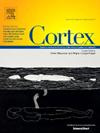Exploring insight into unfamiliar face recognition ability: The case from developmental prosopagnosia
IF 3.3
2区 心理学
Q1 BEHAVIORAL SCIENCES
引用次数: 0
Abstract
This study aims to explore the relationship between face processing ability and individuals' insight into that ability, with a particular focus on those who ‘self-refer’ as having face recognition difficulties; namely, individuals with developmental prosopagnosia (DP). Specifically, the study examines whether self-referred individuals represent a subpopulation with elevated levels of insight into their face recognition performance compared to the general population. Using Bayesian hierarchical modelling, we compared performance across the ‘objective’ Cambridge Face Memory Test (CFMT) and the ‘subjective’ 20-item Prosopagnosia Index (PI20) in self-referred DP individuals (N = 279) and normative populations (N = 1,344)-this statistical approach allows for flexible, probabilistic predictions about performance based on subjective insight and group membership, enabling more nuanced comparisons. Despite hypotheses that self-referring participants might demonstrate superior metacognitive insight, results showed no credible evidence of enhanced alignment between PI20 and CFMT measures in this group compared to normative samples. Overall, these findings underscore the limitations of current diagnostic tools, emphasizing the need for psychometric refinement to address measurement noise and improve the reliability of subjective self-assessments. This work contributes to understanding individual variability in cognitive insight and highlights the challenges of identifying DP based on subjective and objective alignment.
对陌生面孔识别能力的探讨:发展性面孔失认症的病例
本研究旨在探讨人脸处理能力与个体对该能力的认知之间的关系,特别关注那些“自我认为”有人脸识别困难的人;即发展性面孔失认症(DP)患者。具体来说,该研究考察了与一般人群相比,自我提及的个体是否代表了一个对面部识别表现有更高洞察力的亚群体。使用贝叶斯分层模型,我们比较了“客观的”剑桥面部记忆测试(CFMT)和“主观的”20项面孔失认症指数(PI20)在自我参考DP个体(N = 279)和规范人群(N = 1344)中的表现——这种统计方法允许基于主观洞察力和群体成员身份对表现进行灵活的概率预测,从而实现更细微的比较。尽管假设自我参照的参与者可能表现出优越的元认知洞察力,但结果显示,与规范样本相比,该组的PI20和CFMT测量之间没有可信的证据增强一致性。总的来说,这些发现强调了当前诊断工具的局限性,强调需要对心理测量进行改进,以解决测量噪声并提高主观自我评估的可靠性。这项工作有助于理解认知洞察力中的个体差异,并强调了基于主观和客观一致性识别DP的挑战。
本文章由计算机程序翻译,如有差异,请以英文原文为准。
求助全文
约1分钟内获得全文
求助全文
来源期刊

Cortex
医学-行为科学
CiteScore
7.00
自引率
5.60%
发文量
250
审稿时长
74 days
期刊介绍:
CORTEX is an international journal devoted to the study of cognition and of the relationship between the nervous system and mental processes, particularly as these are reflected in the behaviour of patients with acquired brain lesions, normal volunteers, children with typical and atypical development, and in the activation of brain regions and systems as recorded by functional neuroimaging techniques. It was founded in 1964 by Ennio De Renzi.
 求助内容:
求助内容: 应助结果提醒方式:
应助结果提醒方式:


